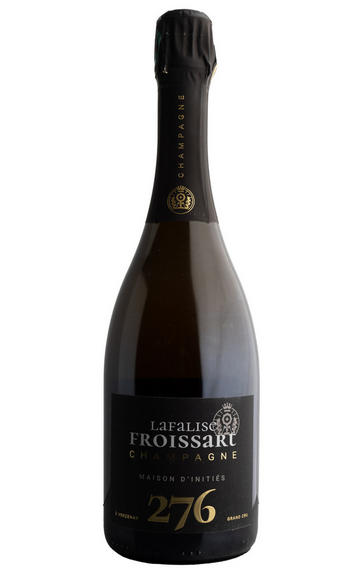
Champagne Lafalise Froissart, Cuvée 276, Grand Cru, Brut Nature
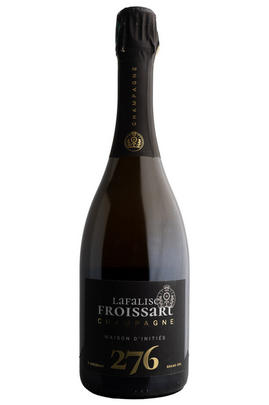
Critics reviews
The NV Champagne Cuvée 276 is from a plot named Les Longues and is predominantly Pinot Noir with a small proportion of Chardonnay. This release is based on the 2019 vintage and has zero dosage. It is assertive and compact, with ripe marasca cherry, lychee, iodine, and sea spray. It has broad shoulders, though it maintains focus and tension, with golden plum, toast, and grapefruit pith. This is a wonderful, food-friendly wine that can certainly stand up through the course of an entire meal.
Paul Froissart is the sixth generation of grape growers in his family and is based in the Grand Cru village of Verzenay. With a marketing background, he returned to the winery in 2014. Initially, he wanted to solely farm grapes and sell them to the houses, but in 2016, he made his first grapes press.
He farms five hectares of vine in Verzenay and a small parcel, Le Terre Rouge, in Dizy, and works with biodynamic principles where possible. Each of his cuvées is represented by a number instead of a name to represent the individual plot they are sourced from, and they are fermented and aged in barrel.
Drink 2023 - 2033
Jeb Dunnuck, JebDunnuck.com (November 2022)
About this WINE
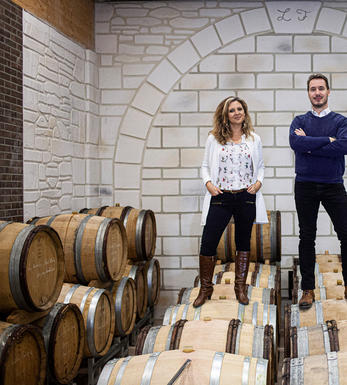
Champagne Lafalise Froissart
Champagne Lafalise Froissart is found in the heart of the Verzenay Grand Cru vineyards, home to some of the greatest Pinot Noir in the Montagne de Reims. This family-run winery is now in the hands of the sixth generation, with Paul Froissart spearheading the operation and making the most of his intimate knowledge of their unique terroir.
Both organic and biodynamic certified, Lafalise Froissart prioritise the health of their soils and vineyards to great reward. They produce terroir-focused, elegant and precise wines that rub shoulders with the greatest names in the area.
The benefit of the low-intervention approach means that each parcel can express its own unique properties in the final wine. Lafalise Froissart's two cuvées, 045 and 276, have their own charming typicity and power. The 276 shows more minerality and freshness, while the 046 exemplifies the power and elegance of Pinot Noir. These are absolutely Champagnes for fans “in the know” – limited quantities of exceptional-quality wine that you can enjoy for years to come.
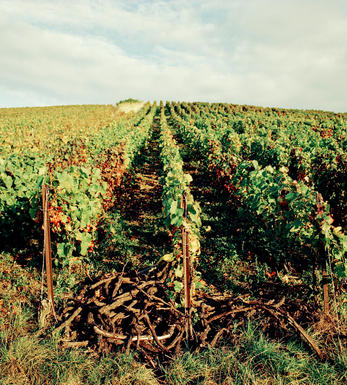
Blanc de Noirs
Blanc de Noirs describes a wine produced entirely from black grapes. In Champagne, Blanc de Noirs cuvée can be made from the two black grapes permitted within the appellation, Pinot Noir and Pinot Meunier. Bollinger's prestige cuvée Vieilles Vignes Françaises, from ungrafted, old Pinot Noir vines, has set the yardstick in a style that is now produced by a number of other Champagne houses.
A typical Blanc de Noirs cuvée has a deep golden colour, and can be more intensely flavoured than the classic non-vintage, multi-grape blend.Recommended Producers: Cedric Bouchard, Bollinger
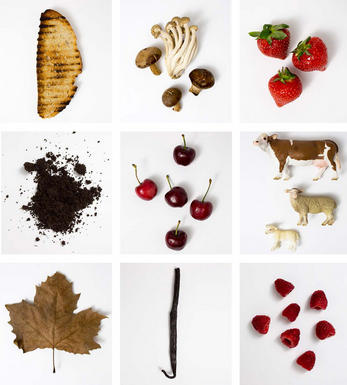
Pinot Noir
Pinot Noir is probably the most frustrating, and at times infuriating, wine grape in the world. However when it is successful, it can produce some of the most sublime wines known to man. This thin-skinned grape which grows in small, tight bunches performs well on well-drained, deepish limestone based subsoils as are found on Burgundy's Côte d'Or.
Pinot Noir is more susceptible than other varieties to over cropping - concentration and varietal character disappear rapidly if yields are excessive and yields as little as 25hl/ha are the norm for some climats of the Côte d`Or.
Because of the thinness of the skins, Pinot Noir wines are lighter in colour, body and tannins. However the best wines have grip, complexity and an intensity of fruit seldom found in wine from other grapes. Young Pinot Noir can smell almost sweet, redolent with freshly crushed raspberries, cherries and redcurrants. When mature, the best wines develop a sensuous, silky mouth feel with the fruit flavours deepening and gamey "sous-bois" nuances emerging.
The best examples are still found in Burgundy, although Pinot Noir`s key role in Champagne should not be forgotten. It is grown throughout the world with notable success in the Carneros and Russian River Valley districts of California, and the Martinborough and Central Otago regions of New Zealand.


Buying options
Add to wishlist
Description
This is a completely different terroir expression to the 045, and the last vineyard to harvest each year – Paul never encounters problems with this ‘golden child’ plot. The soil is a deep, limey chalk. From the 2020 vintage, this has not gone through malolactic fermentation and has no added sugar, in order to express the purity of the Pinot Noir in Verzenay. A gourmand, exuberant champagne, this has been aged in 100% Burgundy barrels and demi-muids.
The nose has more tropical, exotic fruit flavours, extremely pure and intense, while the palate has a beautifully fine texture and citrus flavours. The finish is pure Pinot Noir, with a hint of iodine and a lovely minerality; this is such a food wine – but best paired with seafood.
Drink now to 2030
Davy Żyw, Senior Buyer, Berry Bros. & Rudd (September 2023)
wine at a glance
Delivery and quality guarantee